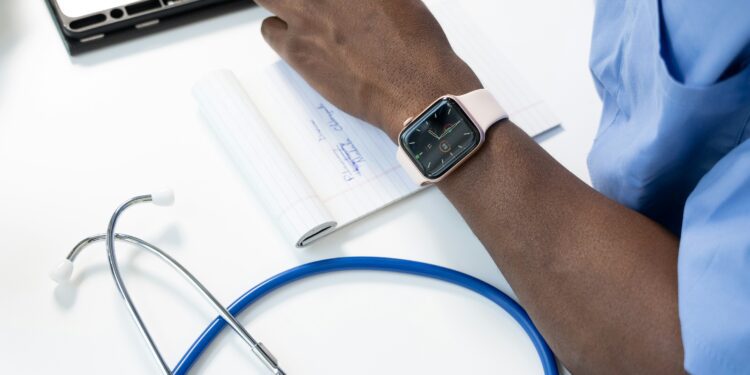Bad news travels fast. But good news? That takes time.
And when it comes to the federal prosecution of physicians, most headlines are grim.
This month, the medical community watched in dismay as Dr. Neil Anand—9/11 first responder and respected pain specialist—was convicted in a federal courtroom. A man who once ran into chaos at Ground Zero is now labeled a criminal by the same country he risked his life to serve.
Yet in the same federal district, a quieter story unfolds—one of resistance, redemption, and the slow, essential unraveling of a system that has long gone unchecked.
The Cracks Beneath a Conviction
Dr. Anand’s conviction is tragic—not only in its human cost but in what it reveals about the fragile fault lines of justice in modern medicine. Pain management physicians, in particular, walk a legal tightrope, balancing trust in patients with fear of prosecution. The line between compassionate care and criminal liability has never been thinner.
But while the headlines dwell on the fallen, a federal court in Eastern Pennsylvania has quietly authorized a constitutional challenge to the very machinery that facilitates these prosecutions.
That court—where I, too, was once the defendant—has now allowed an unprecedented legal argument to move forward: that the DEA’s use of internal administrative courts, complete with its own judges and insulated procedures, violates due process. This system, often operating without real judicial oversight, has destroyed careers without the protections guaranteed by the Constitution.
It is a bureaucratic Leviathan—and finally, a federal judge is willing to peer inside.
The Acquitted and the Unbroken
I understand this world intimately.
In 2021, federal agents raided my practice. The charges came later. Prosecutors hoped I would fold—plead guilty and disappear quietly. I didn’t.
In May 2024, after a six-day trial and a few short hours of jury deliberation, I was acquitted on all counts. I never testified. I let the facts—and two expert witnesses—speak for themselves.
Today, I’m back where I belong: caring for patients in the Lehigh Valley.
And I’m not alone.
Dr. Loey Kousa, another physician charged in the opioid dragnet, also fought back. Her trial revealed flimsy evidence and prosecutorial assumptions divorced from clinical reality. She, too, was acquitted.
These victories aren’t just personal—they’re political. They are signs that juries, when given the full story, can reject the government’s narrative. They are proof that doctors, even under siege, still have agency. Still have a voice.
The Redemption of Dr. Jay Joshi
But what happens when you don’t get your day in court?
Most don’t. Fewer than 2% of federal criminal cases go to trial. Most defendants plead out—not because they are guilty, but because they’re exhausted, financially drained, and terrified of losing everything.
Dr. Jay Joshi’s story followed that all-too-common arc: indictment, pressure, plea. But he didn’t vanish.
Instead, he rebuilt. He launched Daily Remedy, a digital platform to rethink opioid policy, spotlight medical injustice, and recast the narrative around physician prosecution. Through his writing, Joshi has become a voice not only for himself but for a profession too often silenced by fear.
He reminds us: even when stripped of credentials, a physician’s insight—and humanity—can still resonate.
An Administrative Goliath
The deeper crisis isn’t just about a few overzealous prosecutors or misunderstood doctors. It’s systemic.
The DEA’s internal court system—largely immune to external checks—operates like an administrative Star Chamber. These courts adjudicate without juries. They punish without full due process. And they often make decisions that destroy careers without public scrutiny or scientific basis.
The result? A system that conflates deviation with deviance. That punishes nuance. That preys on the moral ambiguity of medical care to enforce rigid and punitive rules.
Too many good physicians have paid the price. Not because they broke the law—but because they practiced medicine in an era of legal ambiguity and prosecutorial ambition.
The Moral Arc Bends—Slowly
But something is shifting.
Acquittals are increasing. Constitutional challenges are advancing. And the profession is beginning to stir.
This is the slow, early bend of the arc of justice—the kind Dr. King once said bends toward moral clarity. It won’t be fast. It won’t be easy. But it is happening.
And physicians must help bend it.
Resilience Over Despair
Dr. Anand’s conviction is a gut-punch. But despair is not a strategy. Dignity is. So is resistance.
We must believe in vindication. We must prepare for trial—not just legally, but emotionally, spiritually, communally. We must teach each other to say no. To say, “I did nothing wrong, and I will not plead.”
We must fight not just for ourselves, but for the patients who trust us, and for the ideals we once swore to uphold.
A Call to Medicine
To my colleagues in psychiatry, primary care, addiction medicine, and pain management: this could be you.
But you are not alone.
Together, we are stronger. Every physician who refuses to plead, every case that ends in acquittal, and every challenge to a corrupt administrative system builds momentum.
We must not wait for the next tragedy to speak out.
We must speak now.
Let us reclaim our profession—not through silence, but through strength.
Let us demand justice.
Let us, finally, begin to heal.















